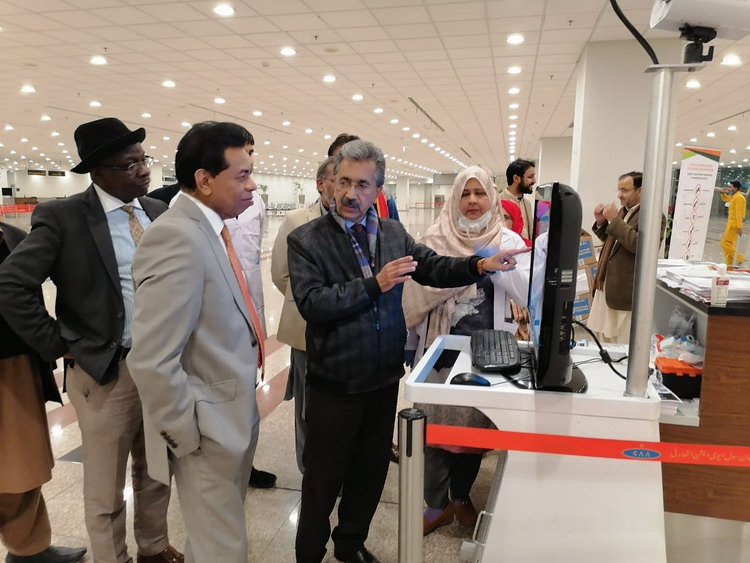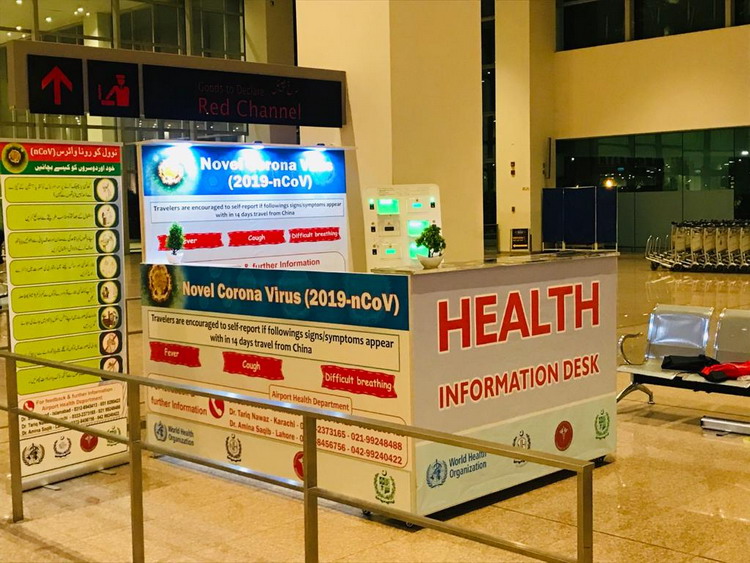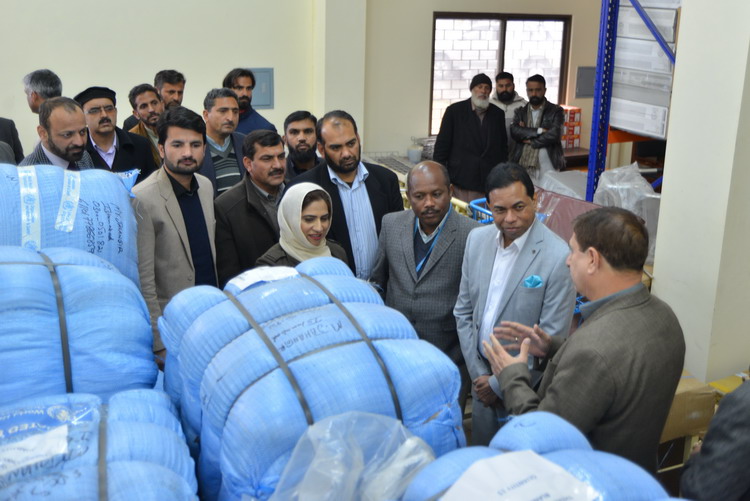5 February 2020 – While there are no reported cases of illness caused by the 2019 novel coronavirus (2019-nCoV) so far in Pakistan, the Government of Pakistan is actively preparing in case this new virus is imported, in line with the International Health Regulations (2005). WHO is pro-actively working with the national authorities for establishing and strengthening preparedness for 2019-nCoV.
Based on currently available information, WHO has provided technical guidance which includes how to monitor for sick people, test samples, treat patients, control infection in health centers, maintain the right supplies and communicate with the public. Moreover, specific tools have been adapted to the Pakistan context such as the capacity assessment tool for health facilities.

“I’ve been very impressed by the commitment of the Government of Pakistan to fully mobilize all preparedness measures to tackle this emergency. They have been vigilant and are prepared for all eventualities,” says Palitha Mahipala, WHO Representative in Pakistan.
Air travel is a major risk factor in the transmission of the virus to all parts of the world. Moreover, Pakistan is bordering China where all provinces now have confirmed cases. WHO has supported the Ministry of Health with strengthening surveillance at points of entry to the country and setting up of a health information desk at the international airport of Islamabad.
Health Cluster Coordinator of the United Nations, Michael Lukwiya, highlights his concerns, “At this time we need to be vigilant and put an emphasis on preparedness with all partners. We want to re-assure the public that steps are being taken well in time to avert the possible spread of a virus that has already claimed over 300 lives.”

In close cooperation with the Ministry of Health, WHO has developed the capacity of the diagnostics in the laboratories. This entails sample collection, packaging, transportation and testing guidance being adapted to the national context. Moreover, initially four hospitals have been equipped with specialized medical supplies for infection prevention and control such as thermo guns, masks, gowns and more. Additionally, isolation facilities for admission of suspected cases have been set-up. These efforts will be strengthened and built-up in the coming weeks.

WHO shares the concern of many people who are worried for their own health and that of their friends and family. The emergence of any new pathogen with the potential to cause severe illness and death is of grave concern and must be taken with the utmost seriousness. It is recommended that to protect against the novel virus and reduce general risk of its transmission, individuals should avoid close contact with people suffering from acute respiratory infections; wash hands frequently, especially after direct contact with ill people or their environment; and avoid unprotected contact with farm or wild animals. WHO does not recommend any specific additional health measures for travellers or for the conduct of trade.


